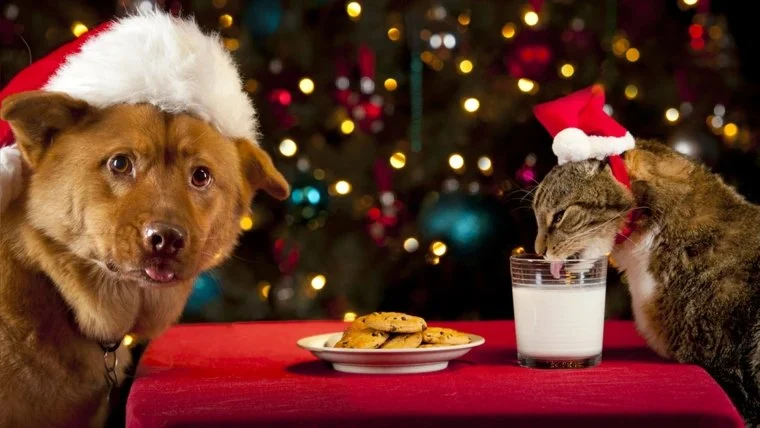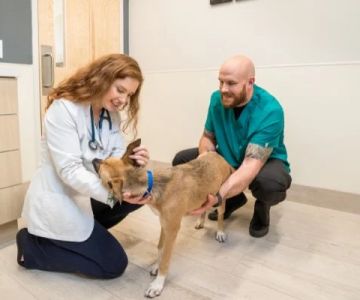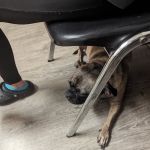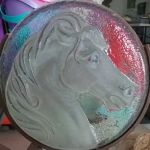
Holiday Pet Diet Safety: Foods to Avoid & Safe Treats
- 1. Foods to Avoid This Holiday Season
- 2. Safe Treats for Your Pet During the Holidays
- 3. Common Holiday Foods That Are Dangerous for Pets
- 4. How to Keep Your Pet Healthy During the Holidays
1. Foods to Avoid This Holiday Season
The holidays are a time for family, friends, and festive food. However, while we're enjoying seasonal treats, it’s important to remember that certain foods can be harmful or even toxic to pets. Here’s a list of foods that pet owners should avoid feeding their furry friends during this time of year:
- Chocolate: A classic holiday treat, but it’s dangerous for pets, especially dogs. Chocolate contains theobromine, which can cause symptoms ranging from vomiting to seizures and even death if ingested in large quantities.
- Onions and Garlic: These common holiday ingredients are toxic to dogs and cats, even in small amounts. They can cause damage to red blood cells, leading to anemia.
- Alcohol: Never allow pets near alcoholic beverages. Alcohol can cause serious health issues, including vomiting, diarrhea, respiratory distress, and in extreme cases, coma or death.
- Macadamia Nuts: Often found in cookies or other baked goods, macadamia nuts can cause weakness, tremors, and hyperthermia in dogs. They should be kept out of reach.
- Bones: While the idea of giving pets a tasty bone may seem appealing, cooked bones can splinter and cause choking or damage to the digestive tract. Stick to pet-safe chew toys instead.
2. Safe Treats for Your Pet During the Holidays
While there are many foods to avoid, there are also plenty of safe and healthy treats you can offer your pet during the holiday season. Here are some great alternatives:
- Carrot Sticks: A great low-calorie, crunchy snack for dogs. Carrots are high in fiber and low in fat, making them a healthy and safe treat.
- Apples: Sliced apples (without seeds) are a tasty and nutritious treat for dogs. They’re a good source of vitamins A and C.
- Sweet Potatoes: Cooked sweet potatoes are rich in vitamins and fiber. They can be served in small, bite-sized pieces as a satisfying treat for dogs.
- Plain Popcorn: Unsalted, unbuttered popcorn is a fun and safe snack for dogs. Just make sure there are no unpopped kernels, which can be a choking hazard.
- Frozen Fruit: Some pets enjoy frozen fruits like blueberries or strawberries as a refreshing and healthy treat. Be mindful of portion sizes, as fruit contains sugar.
3. Common Holiday Foods That Are Dangerous for Pets
It's easy to overlook the risks associated with certain holiday foods when you’re enjoying festive meals. However, several foods commonly served during the holidays can cause serious health problems for pets:
- Cakes and Pastries: While delicious for us, cakes and pastries are typically high in sugar, fat, and artificial sweeteners like xylitol, which is toxic to pets.
- Citrus Fruits: Fruits like oranges, lemons, and grapefruits contain essential oils and acids that can irritate your pet’s stomach and cause digestive issues.
- Stuffing: Often containing onions, garlic, or raisins, stuffing is dangerous for pets. Even small amounts can lead to toxic reactions.
- Gravy: Rich and fatty gravies are common during holiday meals but should not be shared with pets. They can cause pancreatitis or upset stomachs.
4. How to Keep Your Pet Healthy During the Holidays
The holidays can be a hectic time, but taking some simple precautions can help ensure your pet stays healthy and safe while you enjoy the festivities. Here are some tips to keep your pet protected:
- Keep Holiday Foods Out of Reach: Ensure that your pet can’t access the dining table or food prep areas where they might snag something harmful.
- Limit Treats: While it’s tempting to indulge your pet with extra snacks, remember that treats should only make up 10% of your pet’s daily calories. Overfeeding can lead to digestive issues or weight gain.
- Stick to Pet-Specific Treats: Offer your pet treats designed specifically for their nutritional needs. These treats are generally safe and formulated with ingredients that are beneficial to their health.
- Monitor Stress Levels: The holiday season can be noisy and stressful. Ensure that your pet has a quiet space to retreat to when the festivities become overwhelming.
In conclusion, the holidays can be a fun time for both you and your pet, but it’s essential to keep their health and safety in mind. By avoiding harmful foods and offering safe treats, you can ensure your pet enjoys the season without any health issues. For more information on pet care and holiday safety, visit Pet & Puppy to find the best products and services tailored to your pet’s needs.







 Laughery Valley Veterinary Hospital4.0 (226 reviews)
Laughery Valley Veterinary Hospital4.0 (226 reviews) Carroll County Animal Clinic4.0 (571 reviews)
Carroll County Animal Clinic4.0 (571 reviews) Homestead Animal Clinic4.0 (356 reviews)
Homestead Animal Clinic4.0 (356 reviews) Sorum Veterinary Services4.0 (27 reviews)
Sorum Veterinary Services4.0 (27 reviews) INDIANA REPTILE BREEDERS EXPO *once a month*4.0 (173 reviews)
INDIANA REPTILE BREEDERS EXPO *once a month*4.0 (173 reviews) Foley James P DVM5.0 (3 reviews)
Foley James P DVM5.0 (3 reviews) Dealing with Separation Anxiety in Dogs & Cats – Effective Solutions
Dealing with Separation Anxiety in Dogs & Cats – Effective Solutions What to Ask Before Boarding Your Pet: Vet & Staff Questions | Pet & Puppy
What to Ask Before Boarding Your Pet: Vet & Staff Questions | Pet & Puppy Transitioning Training Methods as Pet Ages: Adapting Techniques for Senior Pets
Transitioning Training Methods as Pet Ages: Adapting Techniques for Senior Pets How to Advocate for Your Pet’s Health: What Owners Should Know
How to Advocate for Your Pet’s Health: What Owners Should Know How to Create a Yearly Wellness Plan for Your Pet
How to Create a Yearly Wellness Plan for Your Pet How to Monitor Pet Vital Signs at Home Safely
How to Monitor Pet Vital Signs at Home Safely